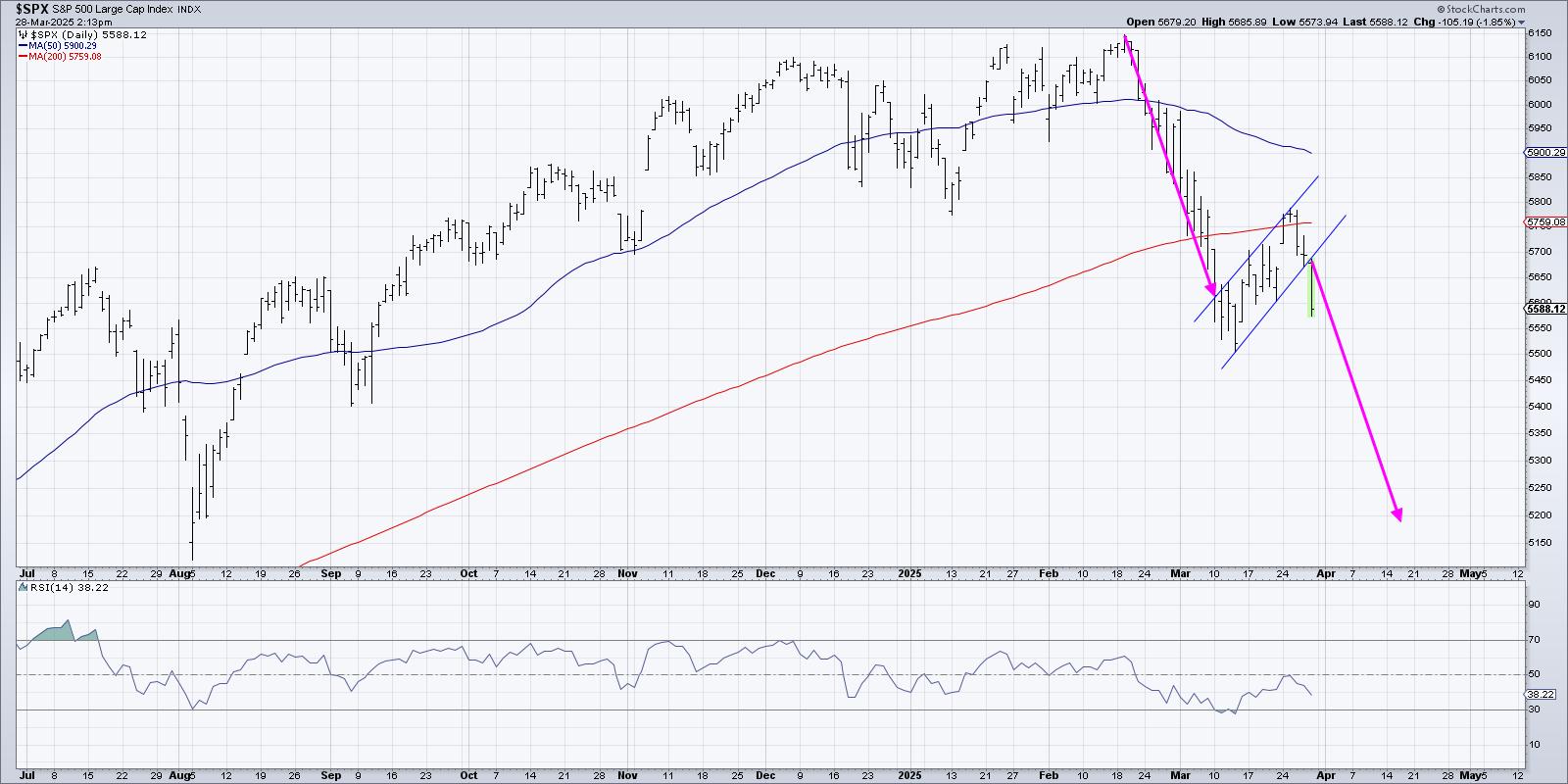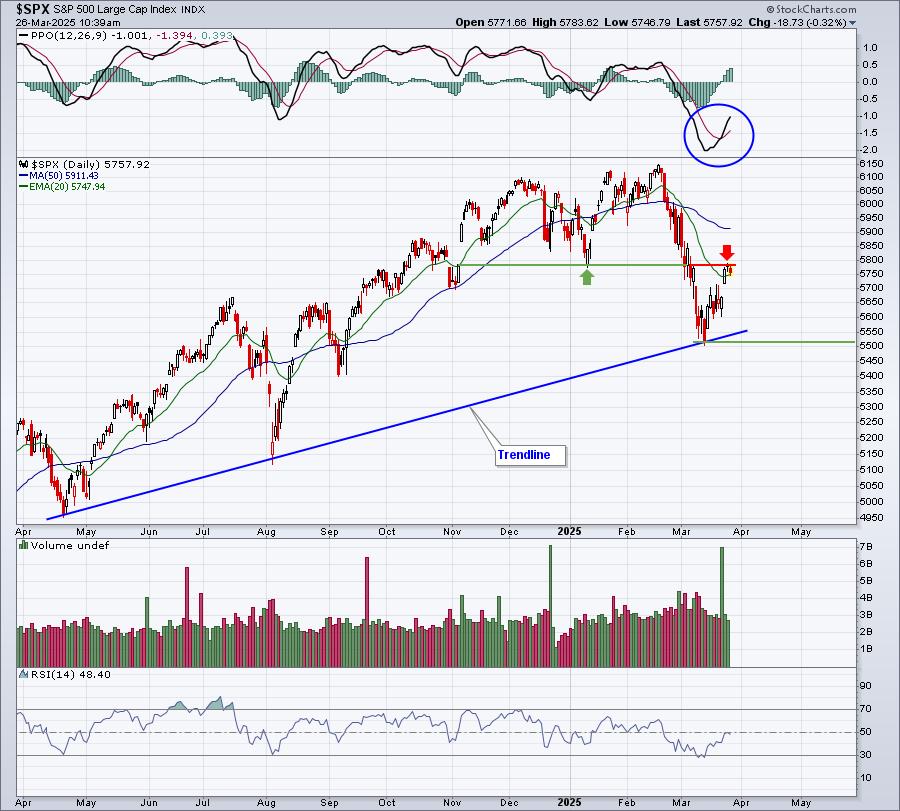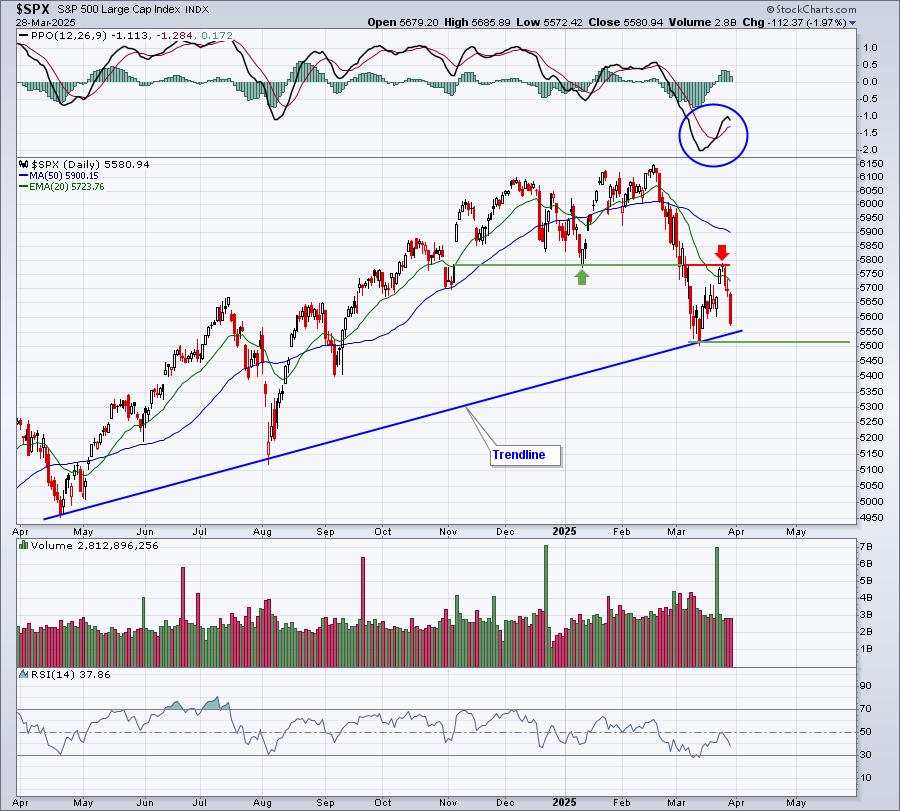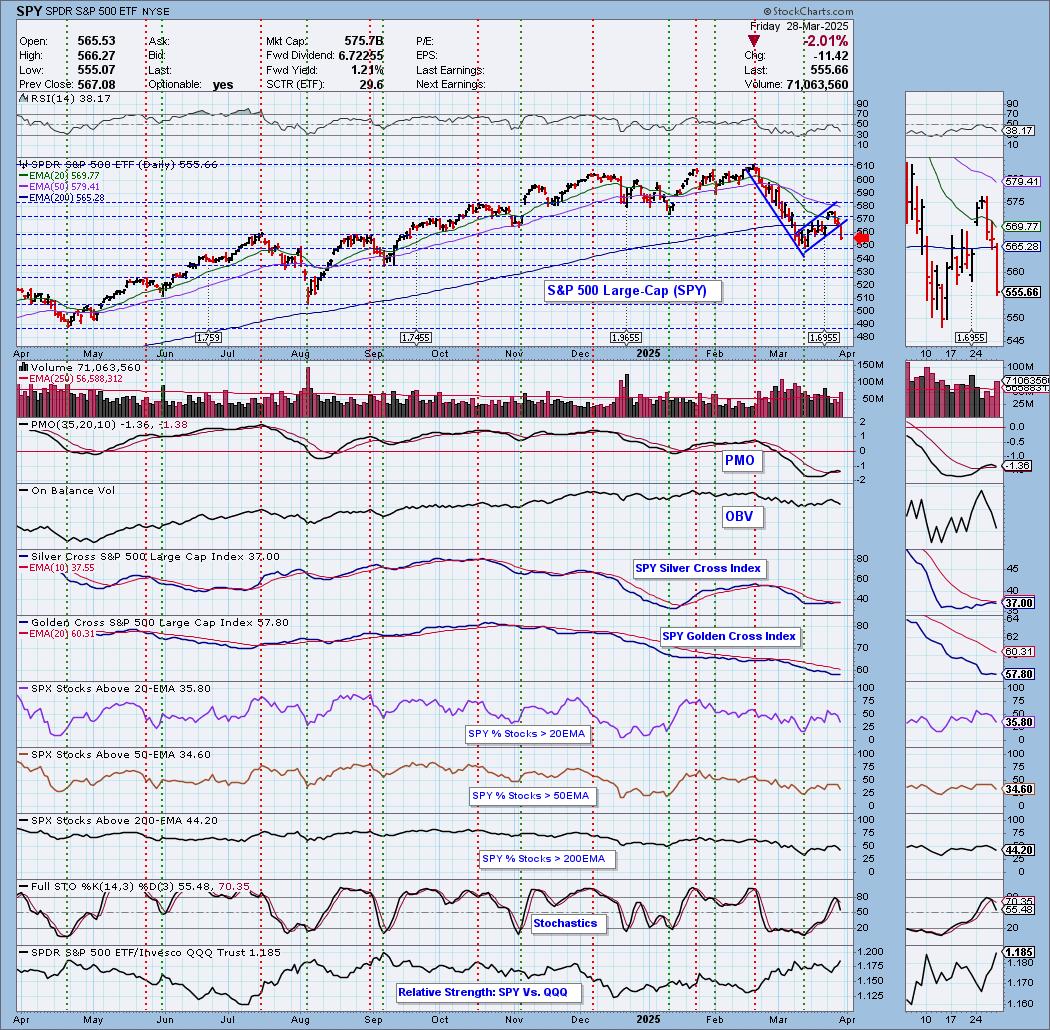 We have Breaking News; but first, we’ll be right back after this message from our sponsor. Do you find that irritating? Baiting you with the ubiquitous breaking news anticipation, then launching into a commercial of someone selling gold because the world is coming to an end? Also, isn’t all news supposed to be breaking? When they cover it again in 20 minutes, isn’t it then just news, not breaking news? How about 4 hours later? Today’s financial media is constantly repeating breaking news. Guess what, it is just part of the continuous noise they generate. Noise is something you do not need to be a trader or an investor who uses technical analysis. It is actually more harmful than helpful. I’m not sure what it is that makes traders and investors think they have to listen to the financial media. Maybe it is because modern finance claims that the markets are efficient and everyone knows everything about a stock at the same time. And that encourages us to think we need to listen to the news or someone will get a leg up on us. And most of us know that is just plain hogwash, plus investing is not the same as climbing a fence.
We have Breaking News; but first, we’ll be right back after this message from our sponsor. Do you find that irritating? Baiting you with the ubiquitous breaking news anticipation, then launching into a commercial of someone selling gold because the world is coming to an end? Also, isn’t all news supposed to be breaking? When they cover it again in 20 minutes, isn’t it then just news, not breaking news? How about 4 hours later? Today’s financial media is constantly repeating breaking news. Guess what, it is just part of the continuous noise they generate. Noise is something you do not need to be a trader or an investor who uses technical analysis. It is actually more harmful than helpful. I’m not sure what it is that makes traders and investors think they have to listen to the financial media. Maybe it is because modern finance claims that the markets are efficient and everyone knows everything about a stock at the same time. And that encourages us to think we need to listen to the news or someone will get a leg up on us. And most of us know that is just plain hogwash, plus investing is not the same as climbing a fence.
I had this article sitting on my computer for a few months waiting for an appropriate time to publish it. Well, the heart of Wall Street’s earnings season is the perfect time. Sit down sometime and just watch the preannouncement, the follow up announcement, then the announcement of earnings for a large company. Pay particular attention to how far off some of the guesses are. For example, if earnings come in at 3 cents a share and the analyst guessed 4 cents that might not sound too far off; but it is just as far off as earnings at $3 and the guess at $4. If I were enamored by earnings (which I am not) I would only be interested in the total earnings, say $3,650,000, compared to a comparable period a year ago. I’m not sure why the shares outstanding come into play although I’m sure there are many who do and can easily justify it. Wall Street likes to tie everything to you (shareholder) so you will feel that it is important. Let’s face it, I remember how good it felt to buy a company’s stock and the next earnings report was quite positive. It was a comfortable supporting feeling. It took a long time for me to realize that nothing mattered in regard to my feeling good. What eventually made me feel good is for the price of the stock to go up – period.
One of my goals in my semi-retired state is to stop watching the news altogether or more probably, much less. I’m not there yet, but moving closer to that goal. Many years ago a new author sent me his book called “Trading in the Stillness". The book was very interesting but dealt with handling your emotions and not what I had expected. It is the unique title of the work that caught my eye and I think could have been the title of this article – Trading in the Stillness.
Let me give you an example of how and why you do not need the news to be successful in the market. Now, as you know, I can get a little carried away, so work with me here. Chart A is a chart without any dates, a price scale, or a name. Let me ask you some questions about it? Try to answer them one at a time while studying Chart A. And no guessing, okay?
1 – Is this a Daily, Weekly, Monthly, or Hourly chart?
2 – Is this a chart of a stock, an index, a mutual fund, an ETF, or a commodity?
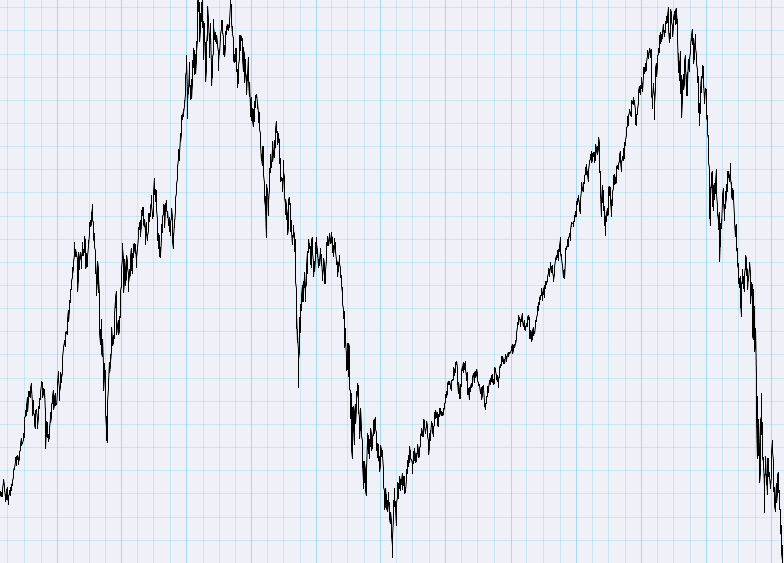
Chart A
When I do this in a presentation, you would not believe the guessing that goes on. I then say that if you guess and you are wrong you must leave the room, or stand on your head, or something to get them to stop the foolishness of guessing. This is about making money in the market, not a child’s guessing game. The reality is that you cannot with 100% confidence answer those two questions. Be very careful looking at this chart and trying to picture some knowledge of past market action and believe you can tie that to this chart’s price action. I will now tell you that it is a stock and the pricing is daily. Now that you know something about this chart, here are some more questions. Again, look at the chart and try to answer them and fix in your mind that a wrong answer will be painful.
3 – During this period of time there were many earnings reports. Can you show me on the chart where any one of them occurred? And were the earnings considered good or bad?
4 – During this period of time there were many FOMC (Fed Open Market Committee) meetings followed by their usual 2:15pm ET announcement. Can you show me on the chart where just one of those occurred? If you are still guessing, then was the report considered positive or negative?
5 – Hurricane Katrina happened during this period of time. Can you show me on the chart where it happened?
6 – Does this stock pay a dividend?
7 – Can you tell me anything at all about this stock’s fundamentals, the economy, or anything?
8 – As a technical analyst, do you see anything in this chart that would make you want to trade it?
Let me tell you what I see when I see this chart or one like it. I see two reasonably nice up trends and if I had a good trend following model and could participate in say 75% of those up trends I would be quite happy. I also see two really big declines and if my model allowed me to miss 75% of those declines, I think it would be obvious that I would have performed considerably better than a buy and hold strategy. And I wouldn’t need Dramamine to help with the motion sickness.
The financial media is bombarding you all day long with useless information. It is presented in such a way that you feel like it is something you must know – it rarely is, if ever. Sometimes they get the initial story incorrect and have to retract it later, or worse, not. And please tell me why they always have a reason for what the market is doing. If the market is up, they find positive (or what they think is positive) news and say that is why it is up. This goes on all day long even when the market is up and down a few times during the day. It might sound like I dislike the media, I really don’t mind them as they have their place. I just want you to realize there is no investment information there; it is just entertainment. For the last 10 years I trekked to the large wire houses with salesmen and in almost every case, the television in the lobby and in the advisors’ offices would be on the cartoon network, I’m sorry I mean CNBC.
Here is a humorous attempt to portray some of the daily noise often referred to as news. On Wall Street today, news of lower interest rates sent the stock market up, but then the expectation that these rates would be inflationary sent the market down, until the realization that lower rates might stimulate the sluggish economy pushed the market up, before it ultimately went down on fears that an overheated economy would lead to once again an imposition of higher interest rates.
And finally, the largest concentration of noise is during earning season. Remember, academia and retail Wall Street have you thinking this is a critical element to investing in common stocks. On a macro level I do believe earnings over time drives the market; I just never figured out how to turn that into a strategy. That is considered knowledge, not wisdom. Knowledge is knowing that a tomato is a fruit, while wisdom is not putting one in a fruit salad. How many times have you witnessed reports of better than expected earnings only to see no action in the stock price to the upside? Or more probably, a short move to the upside to be totally erased in an hour or so. Okay, this is a broken record, but it needs to be drilled home. The financial media broadcasts earning announcements for hours ahead of time and then with much fanfare, tells you where they came in relative to the analysts estimate; often forgetting to tell you what the actual earnings were. If you have paid even a little attention to this gameshow, you will realize that the analysts’ guess is often wrong, and often wrong by a considerable amount. Sad indeed! Hopefully you are noticing a general trend in my posts and that is to get you to believing that a technical approach to investing will remove all of the noise. Technical analysis will provide self-correcting information. While I’m quite sure most of you already believe strongly in the technical approach, I also know from experience that a few reminders along the way can help.
Trade in the stillness,
Greg Morris

